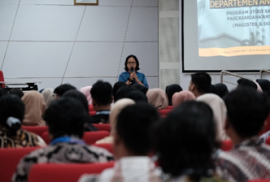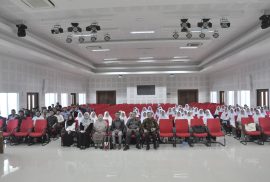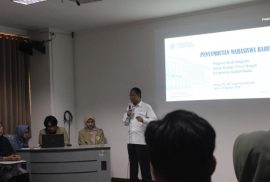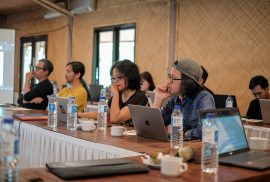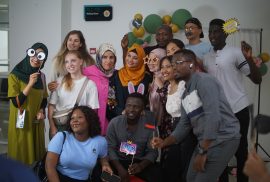Thursday, August 1, 2024, the Department of Anthropology, Universitas Gadjah Mada welcomed the arrival of new students of the Bachelor of Cultural Anthropology Study Program in the 2024 Kampung Budaya, Students Orientation Program. Keprodian, which is a series of Kampung Budaya 2024 Pioneer events, is a medium for new students to get to know anthropology study programs in general. This activity discusses ranging from the KRS system, ethics in contacting anthropology lecturers to the habit of calling Mas / Ma’am to anthropology lecturers. At this year’s Keprodian event, Mrs. Atik as the Head of the Study Program conveyed some advice to new anthropology students, one of which was ethics in contacting lecturers. For example, when contacting lecturers, it should be done during working hours. With smiling faces, the new students listened carefully to the information given.

The department was not very busy that morning, many lecturers including Mas Pujo as the Head of the Department of Anthropology UGM were traveling abroad. Even so, lecturers and staff who could not or who were present were still introduced followed by exposure to programs such as tandem research, field research teams, and so on. The administrators of Kemant (Anthropology Student Family)-an association of anthropology students at UGM-also introduced themselves and explained their work programs.
Author: Daiva Keefe Kalimasadha
Photo : Puspita Nindya Sari

